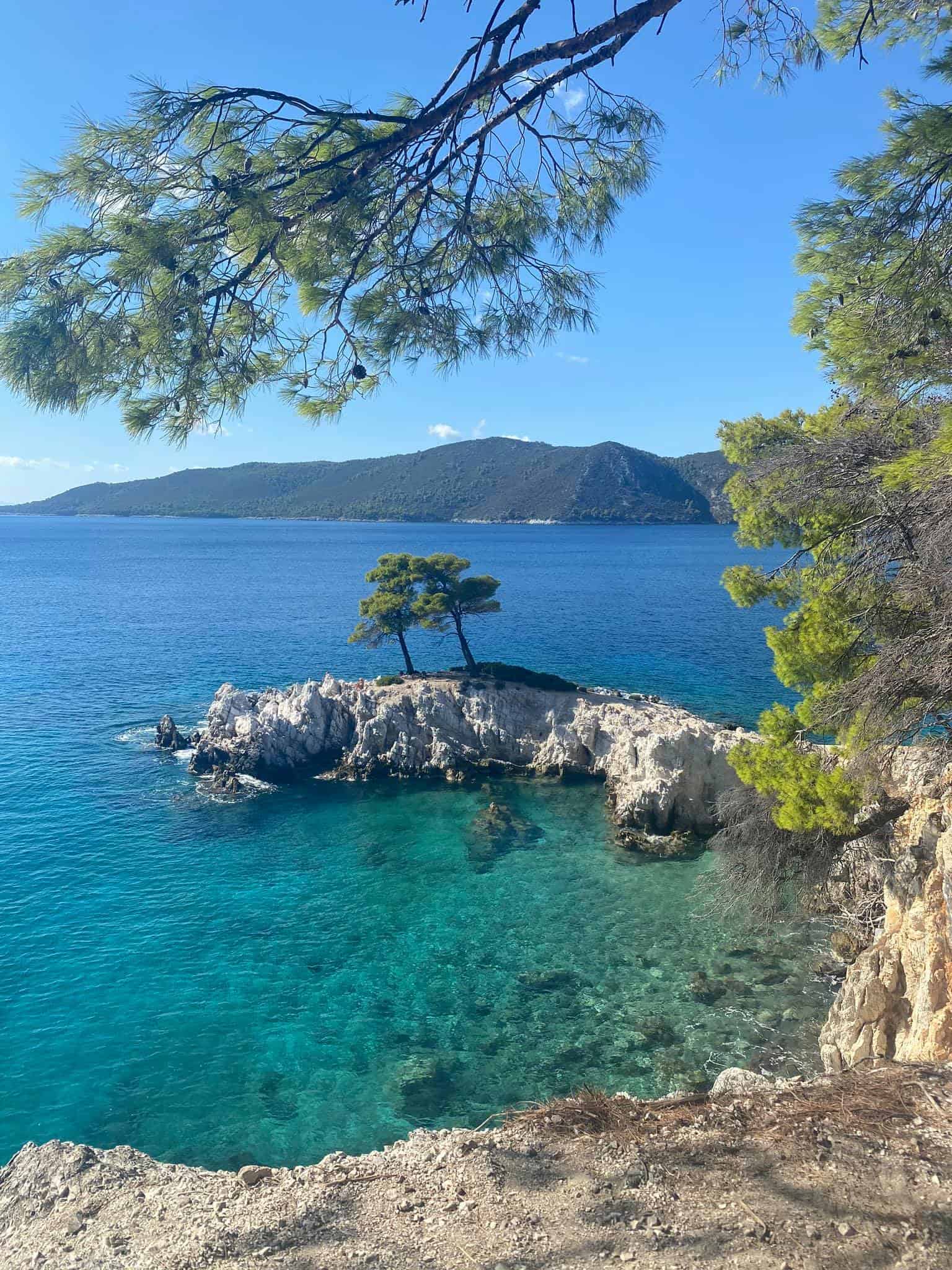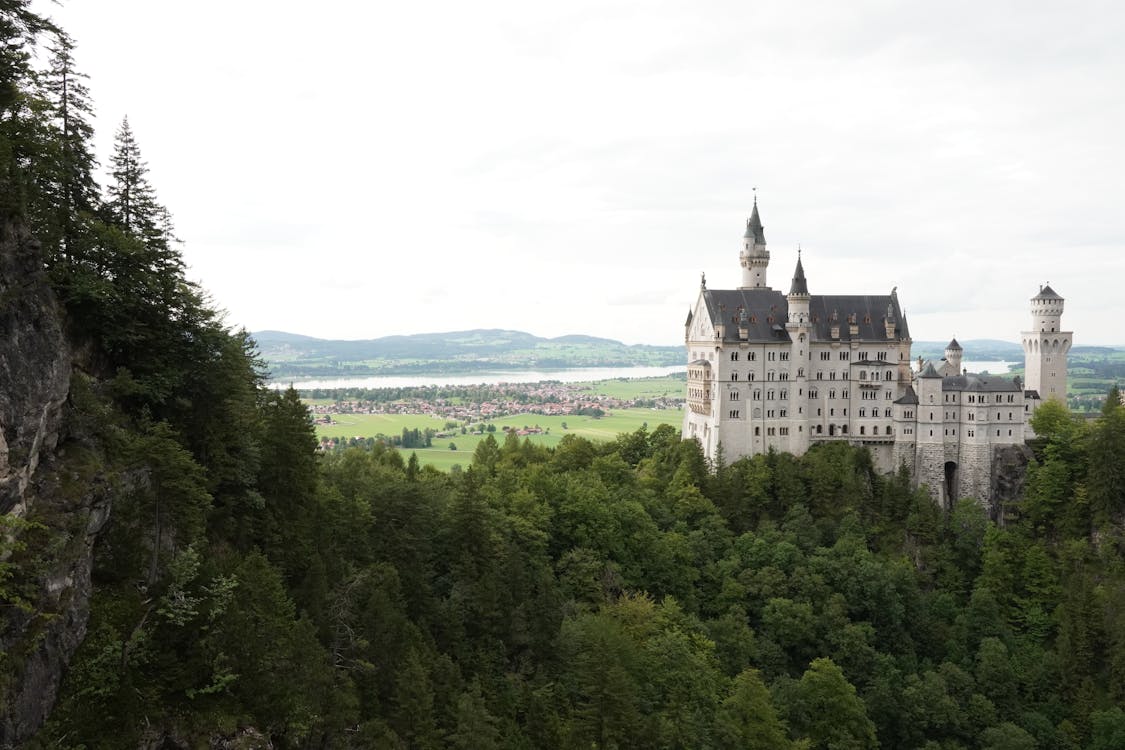Greek mythology stories tell riveting, shocking, and frightening tales of battles with mythical creatures, power-crazed gods that eat their own children, and monsters with eight heads. These stories are nothing more than legends, yes. However they are strongly intertwined with the historical sites in Greece, and the ancient worship of the Olympian gods.
Famous Greek Mythology Stories
There are Greek mythology stories that are set in virtually every part of Greece. Some stories are more famous than others.
No doubt you have probably heard about Jason and the Argonauts – a tale made famous by a plethora of Hollywood books and movies. Similarly, I don’t think there is anyone that has not heard of Medusa – the terrifying witch-woman with snakes for hair that is able to turn men into stone with just one glance.
Greek Mythology Stories and Greece Travel
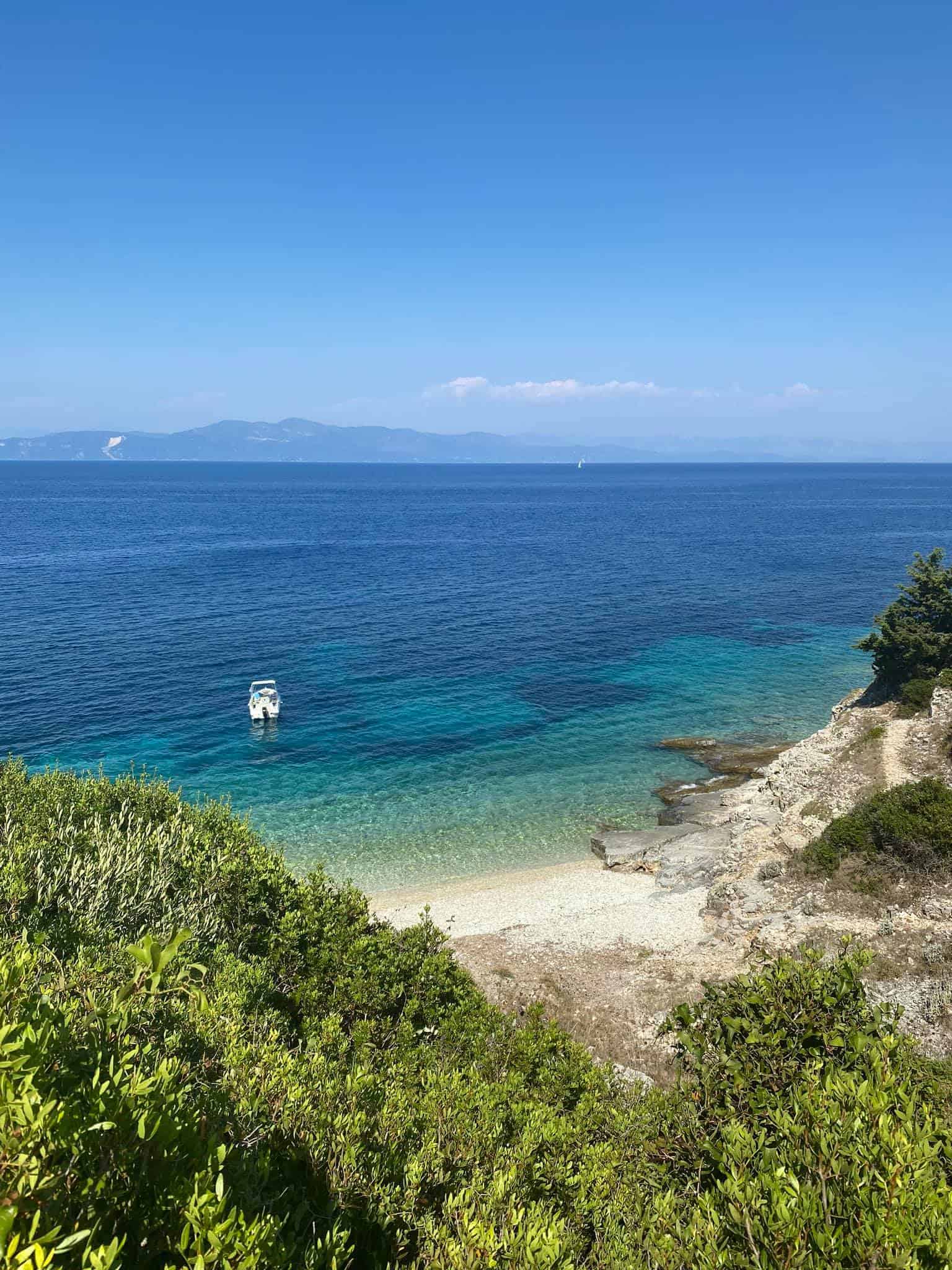
However, there are many fascinating Greek mythology stories that are not so well known. Virtually every Greek island, city, cave, beach, and mountain has links to a specific tale from Greek mythology. There is almost always a monster that lived in the cave, a fair maiden that had to be rescued from an island, and a God that was born on the mountain.
For instance, the beautiful island of Paxos is a tiny green speck that floats just south of Kerkyra in the Ionian. Legend has it that the island was created when Poseidon, God of the Sea, struck the island of Kerkyra (Corfu) with his spear.
The small section of land that broke away from Corfu would become Paxos. Poseidon used this idyllic space as a love nest for himself and his mistress, the Oceanid Amphitrite.
Greek mythology stories may be little more than fairytales. However reading the stories that tie in to various Greece travel destinations somehow seems to add more context. The landscapes of Greece are so breathtaking that they are almost ethereal. It never seems a profound concept to imagine that something magical may have happened there once upon a time.
The Best Greek Mythology Stories
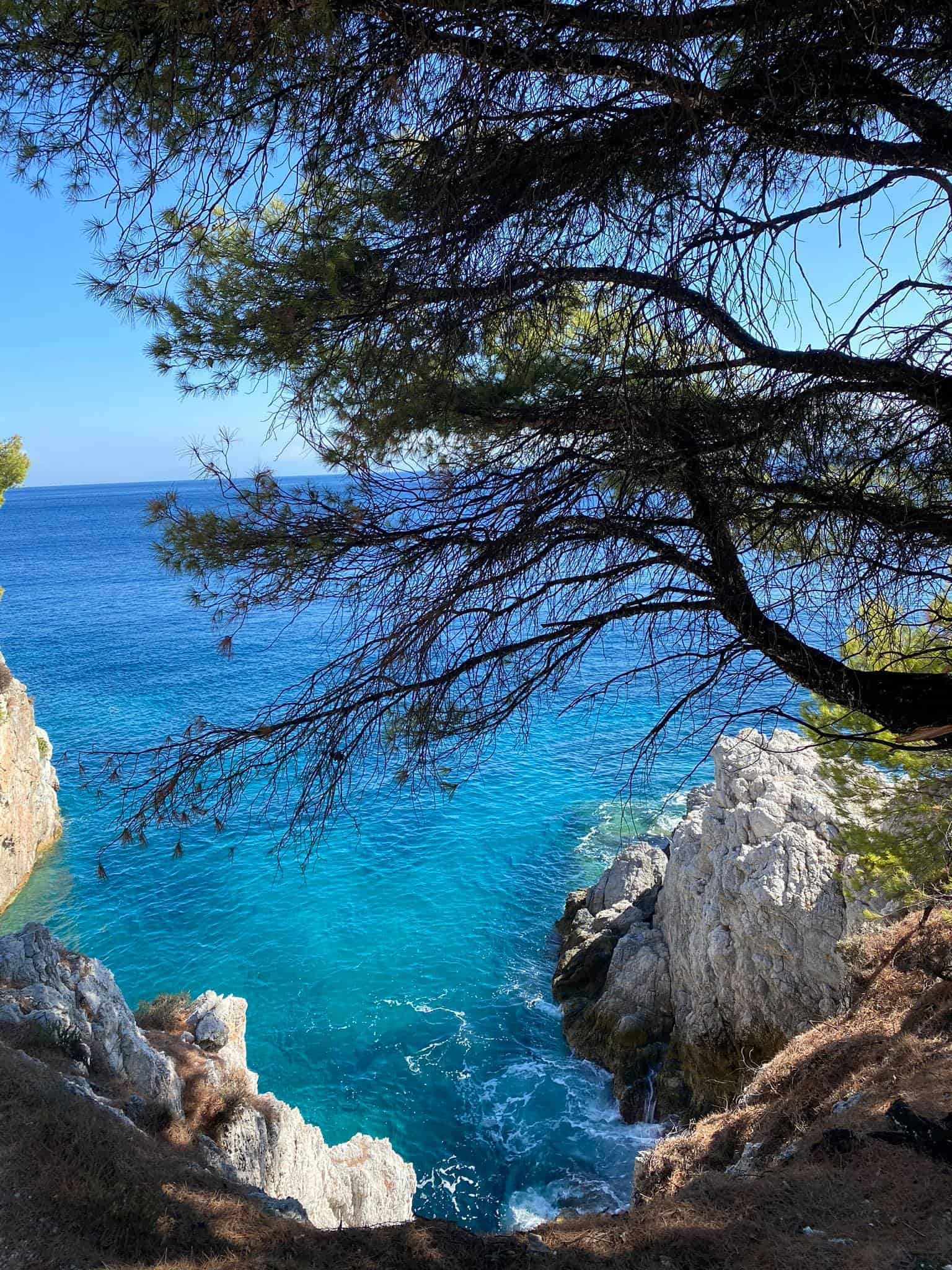
There are hundreds of Greek mythology stories – each one seemingly more creepy, violent, or lustrous than the last. Greek mythology books make for some light-hearted reading for your plane journey en route to your vacation to Greece.
A selection of some of the very best Greek mythology stories have been summarised below. Further reading and recommended Greek mythology books follow beneath.
The Tale of How Medusa Came to Be Medusa
Medusa is the terrifyingly hideous female deity in many Greek mythology stories. She was a “gorgon” – a monster with hissing pythons for hair, ghastly facial features, and a gaze that would turn any man that looked at her into stone.
However Medusa was not always a monster. She was once an incredibly gorgeous mortal woman. Medusa was so gorgeous, in fact, that she caught the eye of the sea god Poseidon.
Poseidon apprehended, raped, and impregnated Medusa in the Temple of the Goddess Athena. Athena, jealous of Medusa’s beauty, and furious at her for “seducing” Poseidon, turned Medusa into the ghastly creature that she was known to be.
Arguably you could find a lot of symbolism in the story of Athena and Medusa. Medusa was the innocent party, yet shamed and punished for Poseidon’s actions.
Medusa eventually met her demise when Perseus travelled to the island of Sarpedon and chopped off her head while she slept. The head was used as a weapon (it still had the ability to transform those who gazed upon it into stone), before Perseus eventually gave it to Athena as a gift.
The Battle for the City of Athens
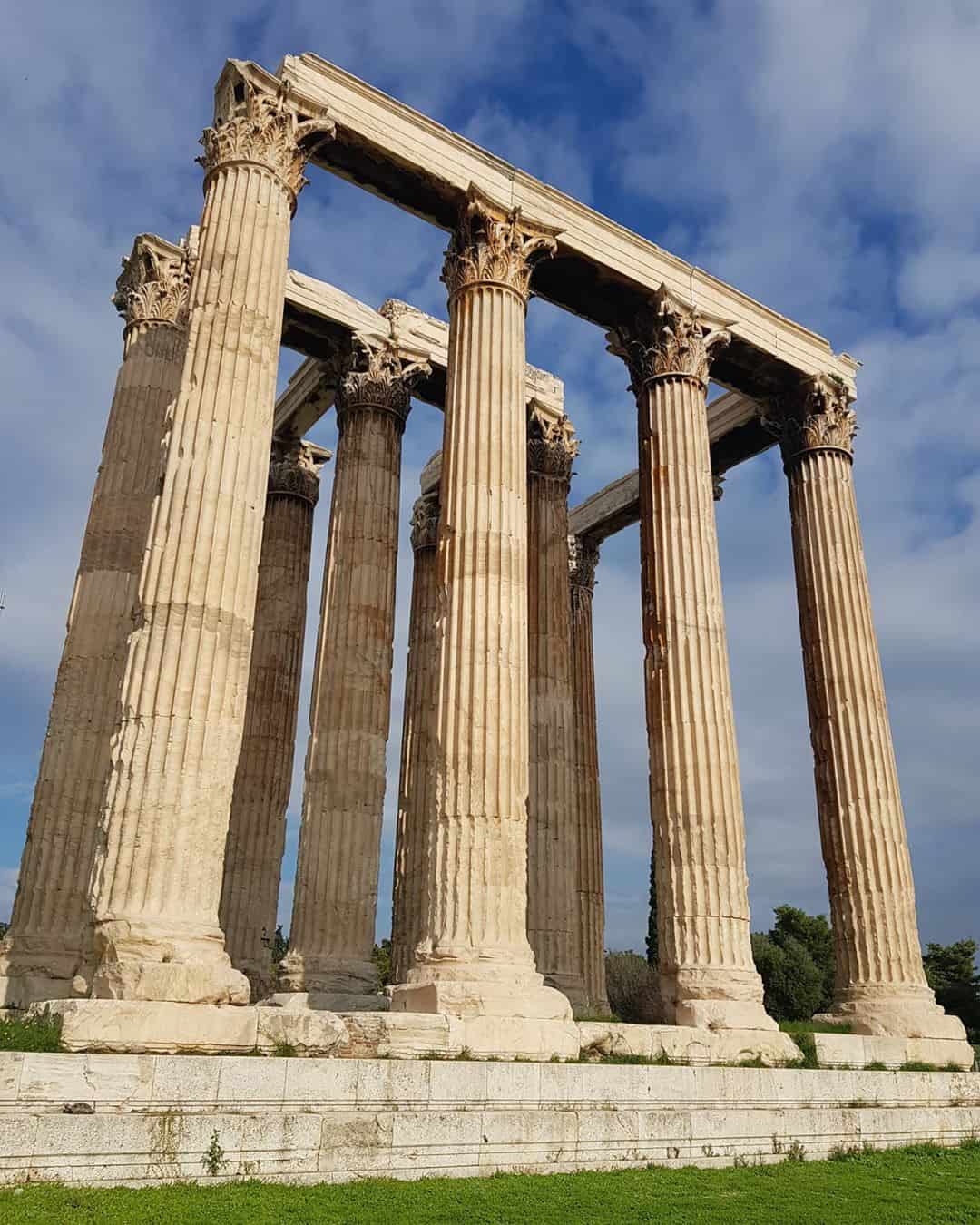
As the name suggests, the city of Athens was named after the Goddess Athena. Indeed, the modern Greek name for Athens is Athena. However, there were once two contenders vying for the position of protector of the city.
Both the Goddess Athena (Goddess of wisdom, war and crafts), and Poseidon (God of the Sea) were interested in becoming the patron God of Athens. The King of Athens at the time was Cecrops – half man, half snake. Cecrops called for a contest in order to determine who would be the protective God or Goddess of Athens.
Athena Versus Poseidon
The two Gods gave gifts to the people of Athens. Then, the people of Athens were tasked with choosing which gift, and subsequently, which God, they preferred.
The Goddess Athena provided the residents of Athens with an olive tree, symbolising prosperity and abundance. Meanwhile. The God Poseidon hit a rock with his trident, causing a flow of water to sprout from where it stood.
Unfortunately, the water that Poseidon gifted was far too salty to be useful as anything other than a water feature. The residents chose Athena as their patron Goddess.
Legend has it that the contest between Athena and Poseidon took place on the craggy hilltop where the Athens Acropolis stands today. If you visit the Acropolis, you should look out for the Erechtheion building.
A noticeable crack on the floor is said to be from the damage caused by Poseidon’s trident. The olive tree that stands on the western edge of the Acropolis site supposedly stands in the same place where Athena gave her gift.
Melissa, the Annoying Nymph, and the Birth of Honey
One of Greece’s most famous and treasured agro products is honey. Honey, along with other Greek produce such as feta cheese, olive oil, homemade jams and preserves, and stuffed olives, makes a wonderful souvenir or gift from any trip to Greece. Some regions, like Nikiti village in Halkidiki, are famous for their honey production.
For the Love of Greek Honey
Today, the modern Greek word for honey is “mele” and “Melissa” is Greek for the honey bee. You might also hear people on Athens beaches screaming “eww a Melissa, a Melissa” during the summer months. This is because the word “Melissa” is also used for wasps.
If, like me, your name is actually Melissa,you might wonder at first why the strangers around you are proclaiming “eww a Melissa, a Melissa”. I digress…
The island of Crete, and the quaint Halkidiki village of Nikiti are two of the largest honey-producing areas in Greece today. Greek mythology tells the tale of Melissa – a shy and tiny nymph who won a contest that earned her a gift from Zeus.
Masterchef: Greek God’s Edition
Picture a Greek Gods edition of Masterchef if you will. The nymphs, nereids, and creatures of Ancient Greece were tasked with bringing Zeus something delicious to try.
The shy and awkward Melissa stepped forward with a vial of golden liquid. At first glance, Zeus assumed it to be pine resin. However it was in fact, sweet, sticky honey – something that had never been tasted before.
Blown away by the taste, Zeus awarded Melissa first prize. Melissa began complaining about how the process of making honey was arduous, time-consuming, and labor intensive. She asked for assistance in making this task easier.
Zeus and the Creation of Bees
Zeus was unimpressed with Melissa’s sense of self-pity. However he begrudgingly agreed to help as he had promised to do so. He made Melissa queen of the bees, providing her with a whole army of little black and yellow workers to help her gather and create honey.
Zeus also agreed to provide bees with a defence against those who may disturb them as they produced their honey – their sting. However for Melissa’s attitude and self pity, he gave this with a caveat. The sting would damage those who received it. However it would be fatal to bees.
Melissa’s honey was used to create the mythical nectar “Ambrosia” – the potion which, when consumed would grant immortality and eternal youth and beauty.
The Story of Zeus’ Cannibalistic Father
In Greek mythology stories, the birth of Zeus was nothing short of a miracle. He was destined to become something great from the very beginning.
Zeus was the youngest child of Rhea and Kronos. His father, Kronos, had received a terrifying prophecy from his own father which predicted that his offspring would be his downfall. Paranoid, Kronos ATE every child that Rhea birthed. That is, until Zeus.
Rhea grew tired and upset with Kronos for eating all of their children(!). When she was pregnant with Zeus, she tricked Kronos by giving him a stone wrapped in blankets like a baby.
Kronos swallowed the fake stone-baby down in one gulp, apparently not even noticing the difference between a stone and a baby. Rhea hurried off to the island of Crete where she gave birth to Zeus in secret, in a cave on Mount Dicte.
When Zeus grew up, he confronted his father and forced him to regurgitate his swallowed siblings. Out came his older brothers and sisters: Poseidon, Hera, Hades, Hestia, and Demeter.
Heracles and the Hydra Monster
The Hydra Monster was the ghastly sea monster that was a child of Echidna and Typhon, and brought up by Hera. Hydra had nine heads, one of which was immortal. It lived in a swamp, in the lake of Lerna in the Argolid.
If one head was decapitated, two more sprouted up in its place. The Hydra was eventually defeated by the Greek hero Heracles.
The Twelve Tasks of Heracles
The God Apollo told Heracles that he had to serve Eurystheus, the king of Tiryns and Mycenae. King Eurystheus provided Heracles with 12 different tasks – each one seemingly more impossible than the last. After slaying the Nemean lion, Heracles was tasked with slaying the nine-headed Hydra.
The battle between Heracles and the Hydra monster was a challenging one. A giant crab named Carcinus came to Hydra’s aid during the battle, making the feat even more difficult for Heracles.
Eventually, Heracles killed Carcinus by stomping on him with his foot. He then defeated the Hydra by chopping off its immortal head, and burying it beneath a rock. After the battle was won, he was able to move onto Eurystheus’ next difficult task: capturing the Ceryneian Hind.
Sounio’s Temple of Poseidon and the Tragic Death of King Aegean
The Minotaur was the mythological creature that lived in the labyrinth of Knossos, on the Greek island of Crete. He was half man, half bull. Every year, dozens of Athenians were sent to Knossos as sacrifices to be eaten by the monster.
King Aegeus was ruling over the city of Athens at the time. He eventually decided that he was tired of his people being gobbled up by the monster and declared that enough was enough. He subsequently sent his son Theseus off to the island of Crete to kill the Minotaur.
White Sails
An agreement was made between King Aegean and his son. If his son was to happen to die in battle, black sails would be raised on the boat.
Theseus travelled to Crete and successfully slew the Minotaur. However, caught up in the celebration of his victory, he completely forgot about the agreement with his father about the sails.
Theseus and his crew sailed back to Athens, blissfully unaware that their ship was sporting black sails. His father, King Aegeus nervously stood on the southernmost tip of Greece (the site today which is home to the Temple of Poseidon at Cape Sounion).
King Aegean waited and waited for his son’s return. When he caught a glimpse of the ship with its black sails blowing in the wind, he wrongly assumed that his son was dead.
Overcome with grief, he lept off the cliff at Sounio to his death in the sea below. Legend has it, this is how the Aegean sea gained its name.
Parting Words
Do you have any additional questions about these Greek mythology stories? Alternatively, do you need help planning a trip to Greece?
I have lived in Athens for the past three years. I am happy to assist you however I am able to do so.
Safe travels! Geia sou!

